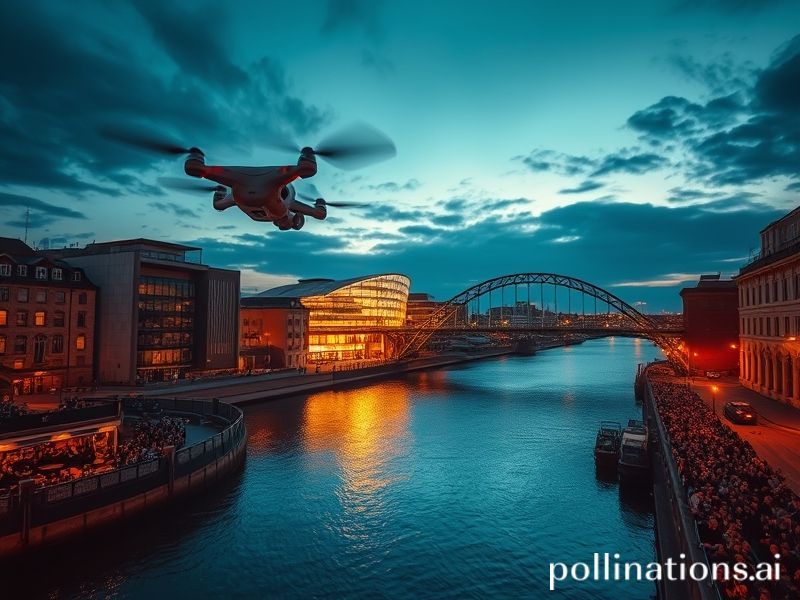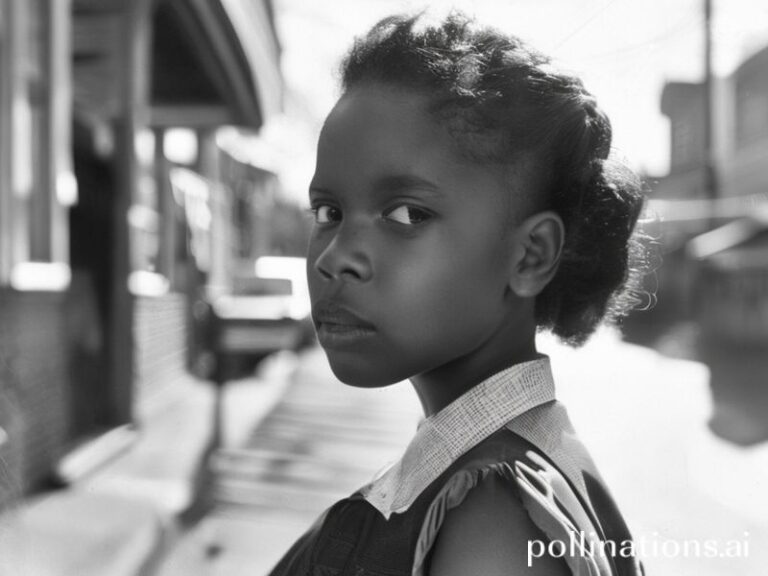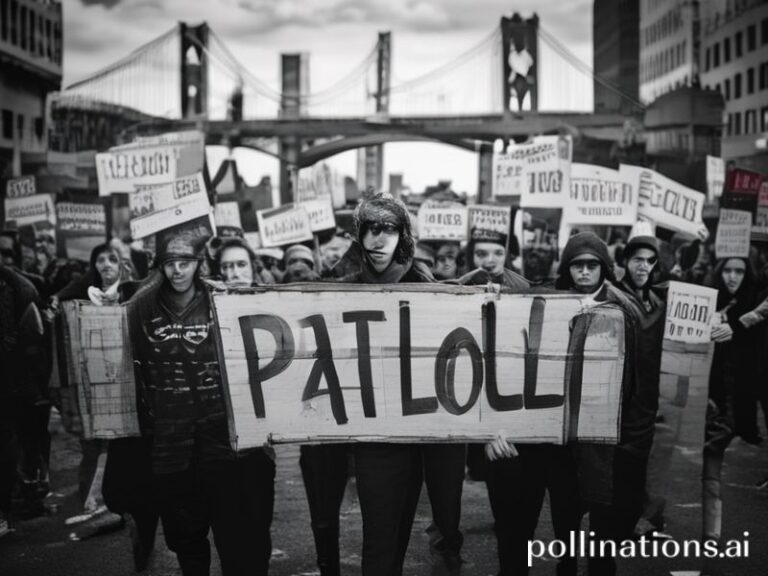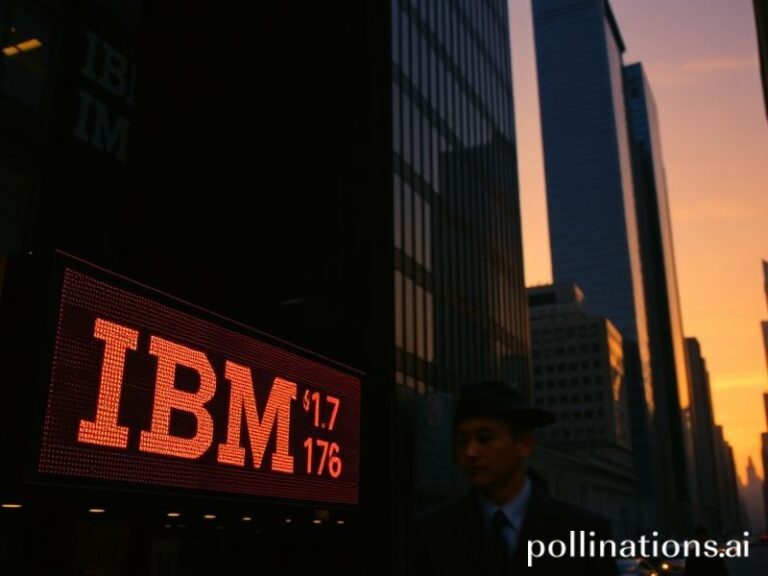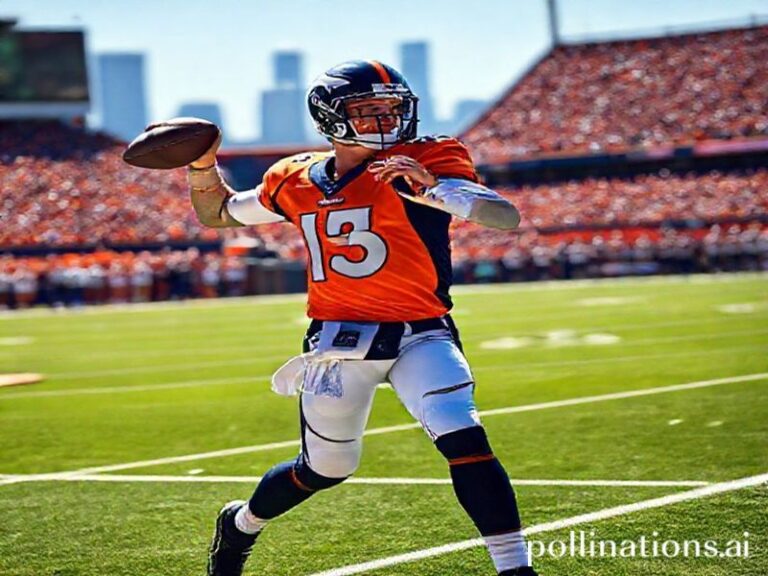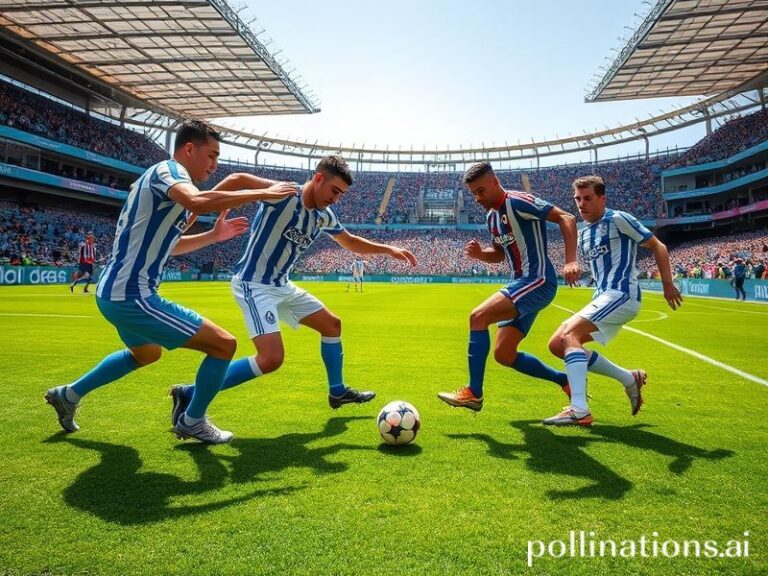Newcastle: From Coal to Goal—How a Drizzly English City Became the World’s Newest Soft-Power Playground
Newcastle—pronounced “nyew-cass-ull” by locals who refuse to acknowledge the existence of consonants—has, for most of the planet, remained a punch-line about coal, rain, and footballers who tackle like they’re settling old family grudges. Yet in the last 24 months, this damp post-industrial smudge on England’s northeast coast has become a geopolitical mood ring: whatever color it turns, the world finds itself staring at its own reflection, usually while nursing a hangover.
Start with the obvious: the Saudi-backed takeover of Newcastle United in October 2021. The transaction was so brazen that even FIFA’s ethics committee—an organization that could misplace a moral compass in an empty room—mumbled something about “optics.” Overnight, St James’ Park turned into a diplomatic pop-up: human-rights NGOs on one touchline, box-fresh Gulf venture capital on the other, and 52,000 Geordies in the middle chanting, “We’re richer than Man City,” which is roughly the same boast Caligula once made about his horse. The Premier League approved the deal after receiving “legally binding assurances” that the Saudi state wouldn’t control the club—an assurance about as reassuring as a chocolate teapot in a blast furnace. Since then, Newcastle have started winning football matches, proving that if you throw enough petrodollars at a problem you can make even 30 years of chronic underachievement disappear faster than a dissident at a Riyadh Ritz-Carlton.
But zoom out. The takeover is merely the northernmost tentacle of a much larger octopus flopping across global sport. From LIV Golf to Qatar’s World Cup, authoritarian regimes have discovered that buying a beloved team is cheaper than aircraft carriers and comes with better brand recognition. The transaction costs roughly one day’s oil revenue and buys you a generation of TikTok highlight reels narrated by teenagers who think “sportswashing” is a new kind of fabric softener. Meanwhile, the British government watches approvingly, because post-Brexit Britain needs friends with deep pockets and shallow questions. Newcastle, in other words, is the test case for a new soft-power playbook: if it works here, expect Ulaanbaatar Rovers bankrolled by Mongolian lithium barons by 2030.
While the city’s football club was being paraded around like a prize falcon at a desert auction, the actual city was quietly drafting its own sequel. The old shipyards—once louder than a Russian telegram channel—now echo with the gentle hum of offshore-wind engineers. Siemens Gamesa, Equinor, and other firms with names that sound like Bond villains have leased quayside acres to build turbine blades longer than a Russian novel. The same currents that once carried coal to power the Empire now spin generators to keep Europe’s heat pumps humming. If that sounds too green and pleasant, remember that each blade is shipped out on diesel barges, because irony is the one renewable resource Newcastle never runs out of.
Global finance has noticed. Singaporean sovereign wealth sniffed around the battery-storage sites; Korean shipbuilders floated joint ventures; BlackRock dispatched analysts in Patagonia gilets to count seabird casualties. Even Brussels cares, because every megawatt generated here is one cubic meter of Russian gas that doesn’t have to flow through Nord Stream’s ghost pipeline. Newcastle, the city that spent two centuries literally fueling the Industrial Revolution, has become a post-carbon bargaining chip—proof that you can teach an old dog new tricks if you pay it in greenback-shaped biscuits.
All of which leaves the locals in a philosophical bind. On match day, they wear tea-towels on their heads in affectionate, if clueless, homage to their new benefactors; on payday, they install heat pumps subsidized by the same governments that sanctioned those benefactors last month. Somewhere between the stadium and the wind farm, reality performs a perfect double pivot. The city’s unofficial slogan—“We send the world coal, then regret it, then sell the apology back at a premium”—has never felt more prophetic.
And so, Newcastle staggers into late-stage capitalism like a stag party that started in 1824 and refuses to go home. It is a place where the past, present, and future huddle together for warmth, occasionally arguing over who bought the last round. The rest of us watch, half-horrified, half-envious, because we know our own cities are next in line for the same makeover—just with different accents and a fresh set of oligarchs. In the great casino of globalization, Newcastle has doubled down on red. The wheel is still spinning. The house, as ever, is us.

